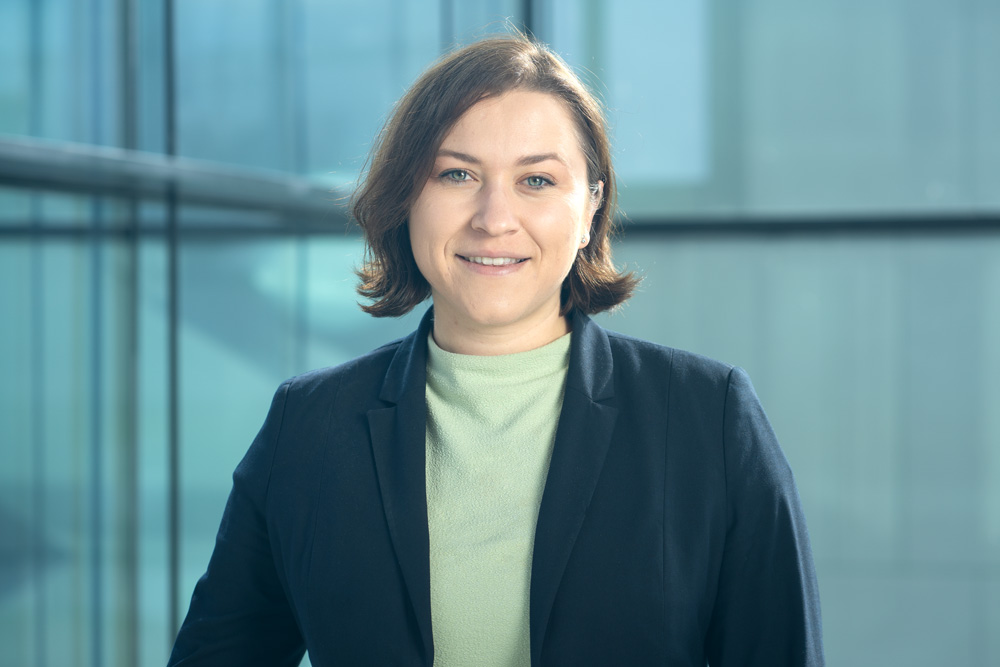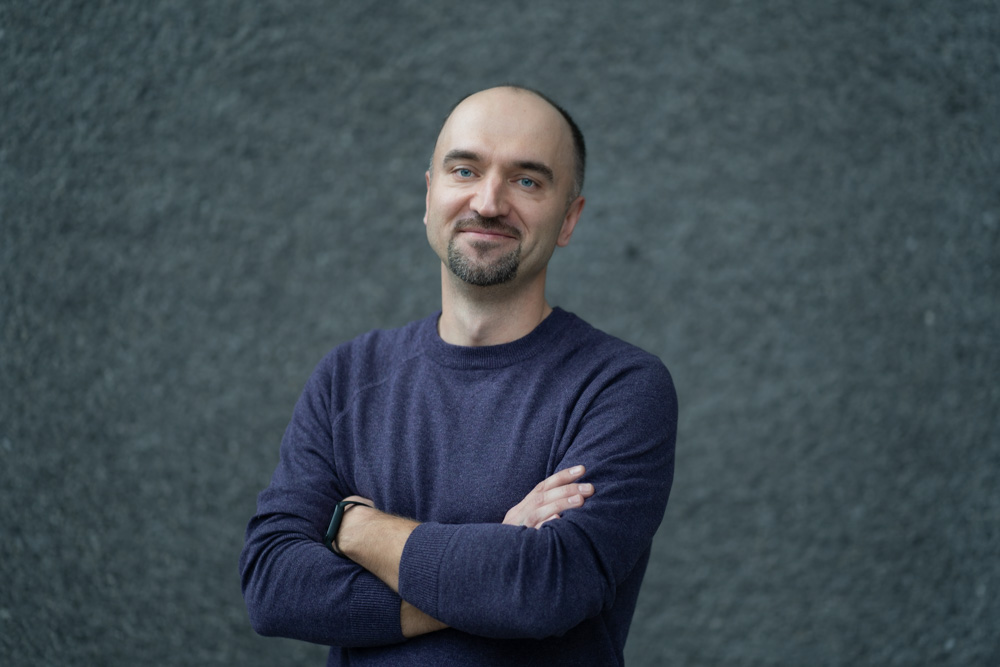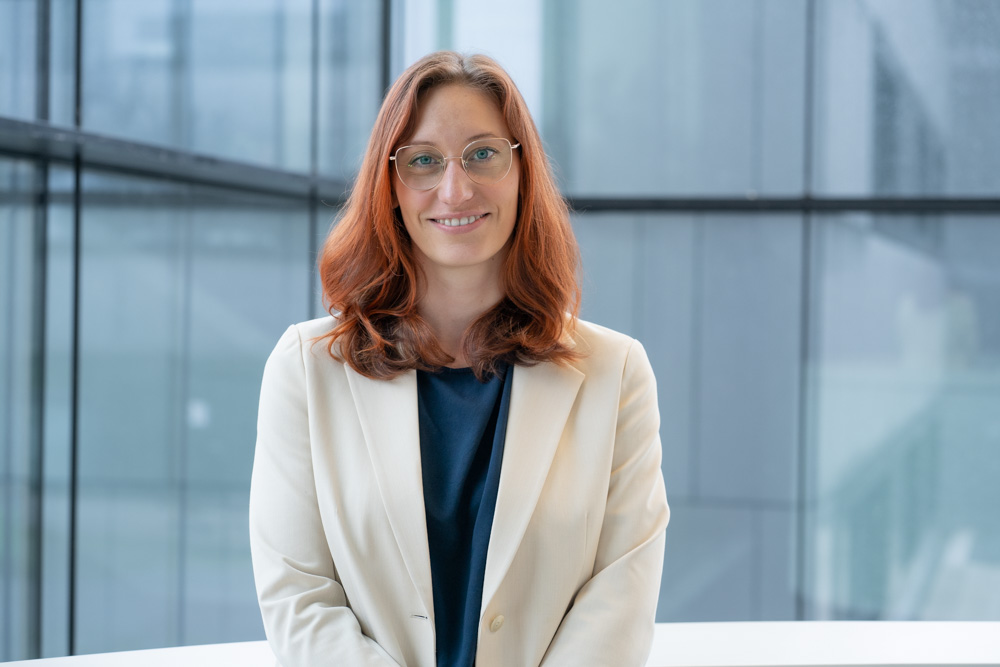deggendorf Institute of Technology
Pioneering & Vibrant
In the extra-occupational certificate course "Digitalisation College: Progressive-Digital Province", you will acquire a range of valuable skills, which are of great importance for later professional life or for a possible start-up. You will receive a task based on a pratical "challenge" from business and politics representatives that you will solve in a team with the help of accompanying block lectures. Use your study time to develop as many practical problem-solving skills and gain broad knowledge of concept creation, prototyping, practical teamwork and project presentations. This will enable you to develop knowledge and expertise that will optimally support you in your personal development and improve your career prospects.
With the university certificate "Digitalisation College: Progressive-Digital Province", you have the opportunity to attend exciting seminars and courses in addition to the practical project and earn a certificate on the successful completion of the course.
Target Group
The university certificate is aimed at students who are already enrolled in all degree programmes at the Deggendorf Institute of Technology and who are interested in applying their knowledge to a practical case and developing themselves even further in interdisciplinary teams. Participation in the certificate course is particularly interesting for those who are interested in founding a company but do not yet have a start-up idea or a team.
Formal requirements for participation in the university certificate "Digitalisation College: Progressive-Digital Province" are:
- Enrolment as DIT student a (all degree programmes)
either
- As a Bachelor's student with at least 40 ECTS credits completed
or
- As a Master's student
In exceptional cases, Bachelor's students can also be admitted before the 40 ECTS have been completed if sufficient practical experience (such as an apprenticeship or work experience), knowledge (programming skills, etc.) or previous studies can be proven.
Please note that it must be guaranteed that you will be on site in Germany for two semesters in order to be able to take this two-semester certificate (no semester abroad or internship during the certificate period).
fact sheet
Certificate flyer
teaching concept
- High virtual component and practical work on the project ensure a high degree of flexibility
- "Challenge" from the business world, semester 1 is the concept phase, semester 2 the prototype phase
- Students develop their idea over the two semesters and repeatedly present the results in pitches during the certificate period
- Problem solving in group work
- Block teaching supports practical work on the practical project
- Supervision of the practical project by experts (professors) who provide support when needed
- Support in prototyping, for example with 3D printers, Arduino kits and Lego Serious Play.
- Due to the small number of participants, individual counselling and an exchange between the participants and the lecturers is possible.
- Depending on the structure of the participants, the course language is German or English.
duration
- The duration of the university certificate is 2 semesters in total
- At least one certificate course is started per semester
- Different thematic areas of rural areas are dealt with. One overarching theme is specified for each course of the certificate programme.
- These are, for example, energy, mobility, health, construction and real estate, agricultural (technology), art and culture, environment, trade, tourism.
- The university certificate comprises a total of 18 ECTS.
- Upon successful completion, students receive a certificate.
time concept
- The overall theme, the courses offered and the corresponding lecturers are always announced at the beginning of the semester.
costs
- There are no separate fees for the courses.
Contents
Examination regulations (in German)
In the case of the compulsory modules 1 to 4, which run consecutively but in parallel and in support of the practical project work, all courses must be completed for the successful completion of the certificate course.
Day 1: Setting of tasks ("Challenge") by person from business, politics and/or science.
Day 2: Team building and creativity techniques, group work in a "World Café".
Day 3: Group work, presentation of the first ideas, pitches.
Module 2 is divided into two different phases in terms of content:
- The concept phase:
Here the students develop a theoretical concept for problem solving. They use it to work on their own problem-solving idea.
- Presentation of contents Concept phase: 1 day
- Midterm pitches Concept phase: 1 day
- Pitches End of concept phase: 1 day
In between the days when all teams meet, they work independently (supported by the supervisors) on their own team projects.
- The prototype phase:
Here the theoretical concept is developed further and something first tangible or visible is created. This can take the form of a prototype, a click dummy, a concept or other types of presentation.
- Presentation of contents Prototype phase: 1 day
- Midterm pitches Prototype phase: 1 day
- Pitches End of prototype phase: 1 day
In between the days when all teams meet, they work independently (supported by the supervisors) on their own team projects.
Module 3 provides the theoretical basis for the students' practical group work.
The following subjects are taught in each run, but the content can adapt in its application to the different over-topics of the runs. The lecturers can also change from run to run.
Block lectures are planned on the following topics:
- Digital Technologies & Business Models
- Process design: the basis of digitalisation
- Cyber Security / Information Security
- Digital Knowledge Communication
- Sustainability and digitalisation
The aim is for the students to practically apply their knowledge from the block lectures to the individual group projects. In the intermediate exams (= pitches / presentations), they have to apply what they have learned to the practical case.
Students from the first round of the Digitalisation College on the topic of "Energy" are taking part in the GROW4Energy Startup Summer School run by Prof. Dr. Javier Valdes together with students from Chile. The focus is on the development of joint ideas and the exchange of knowledge in topics such as solar, wind and hydro energy, energy from biomass and e-mobility.
The Summer School also includes pitch training and the execution of pitches, for example in front of challenge donors or potential customers.
In future rounds of the Digitisation College, other thematically appropriate existing summer schools will be integrated into the Digitisation College, or separate summer schools will be designed.
our lecture team
- Prof. Dr. Wolfgang Dorner - TC Freyung
- Prof. Dr. Roland Zink - Faculty AI
- Prof. Dr. Thomas Geiß - Institute for Start-ups, DIT Startup Campus
- Prof. Dr. Thomas Spittler - Faculty ECRI
- Prof. Dr. med. habil. Thiha Aung, MHBA (Univ.) - Faculty AGW
- Prof. Dr. Josef Scherer - Faculty AWW
- Prof. Dr. Javier Valdes - TC Freyung
- Prof. Dr. Christina Bauer - Faculty AI
- Prof. Harald Zimmermann - TAZ Spiegelau
- Prof. Dr. Marcus Barkowsky - Faculty AI
- Prof. Dr. Wolfgang Aumer - TC Cham
- Alfons Weinzierl, M. Sc. - Faculty AI, DIT Startup Campus
- Prof. Dr. phil. Richard Latzel - Professor of Sports Science, Faculty NuW
- Prof. Dr. Kristina Wanieck - TC Freyung (Bionics)
... and many more.
Registration
Registration is always possible before the start of the semester and is very easy via the following link:
https://survey.th-deg.de/index.php/312671?lang=en
We use iLearn to organise the course. You will be activated here before the course and will receive all important information and documents. After completing the modules, you will receive a certificate of participation.
If you are only interested in individual courses, please contact us.
All confirmations, invitations or other information will be sent exclusively by e-mail.
For individual enquiries, the coordination team is also happy to be reached at pdp@th-deg.de.
Registration is possible until 31 October 2023.
summer school "Game Changers"
In the last week of September (25 - 29 September 2023), the German-Chilean "Game Changers" Summer School will take place at the THD.
It will focus on the topics of "Sustainable Energy" and "Entrepreneurship".
The presence seats for the entire Summer School have already been allocated, but those interested can join in virtually for selected programme points, which will be streamed live.
All live stream elements can be accessed via the same link. The Summer School will be held in English.
Participation in the events is possible without registration.
Monday, 25 September 2023
- 9:00 - 10:00 : Opening speeches with guests of honour
Tuesday, 26 September 2023
- 9:00 - 9:45 : BAYLAT scholarships (AHK Chile)
- 13:15 - 14:00 : Presentation by startup Dhemax (Chile) on their software for fleet management, smart mobility, IoT and energy supply.
Wednesday, 27 September 2023
- 13:15 - 14:00: Presentation: Startups Ecoligo (financing and crowdinvestment in energy projects, among others).
- 16:00 - 17:00: Presentation: Siemens Energy (Andreas Eisfelder, Head of New Energy Business Latin America at Siemens Energy)
Thursday, 28 September 2023
- 14:30 - 15:00: Presentation Startup Vision2future / Stoiber Photovoltaics
Friday, 29 September 2023
- 11:30 - 12:15: Pitches of the group work of the Summer School and the Digitalisation College to the jury
- 12:15 - 12:45: Presentation: lumianEnergy (Founders Andreas and Michael Glashauser, Lukas Holzinger)
- 13:00 - 14:00: Presentation: MAN Energy Solution SE Deggendorf (Dr. Christian Schuhbauer, Head Of New Technologies)
- 14:00 - 15:00: Presentation: IFOX Systems & Thomas-Krenn.AG (Topic: Smart Metering, Dr. Stefan Blöchl)
- 15:00 - 15:30: Presentation: Globemee GmbH (finding jobs in Germany for international students; CEO Sandra Schmitt)

Contact & registration
This project is funded by the Bavarian State Ministry of Science and the Arts
and coordinated by the Bavarian Research Institute for Digital Transformation (bidt).
 |
 |



